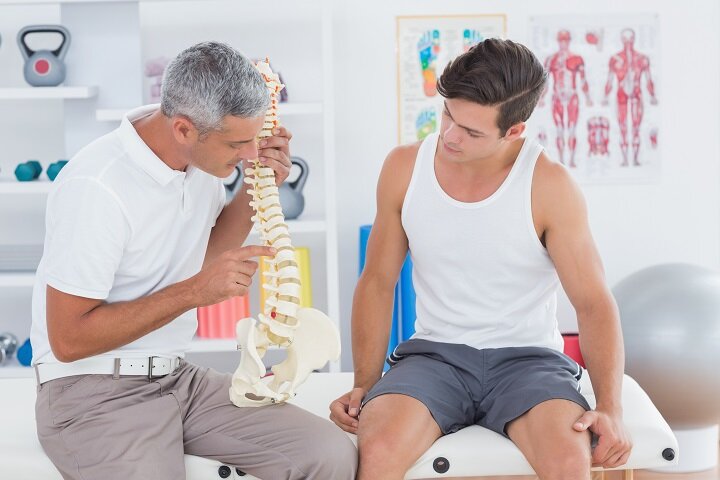Easy and Effective Herniated Disc Pain Relieving Tips
Does your shoulder, arm, buttock, or leg suffer from dull or sharply radiating pain? This can indicate a herniated or bulging disc in the neck or back. There are small cushions called discs between each vertebrae in your spine.
In the 30-50 age bracket, herniated discs are more common. A herniated disc occurs when the inside material comes out and irritates a nerve. Depending on the nerve in the neck or the back, radiation pain, numbness and sensational loss can occur on either side of the spine.
The majority of people can alleviate their pain by using medications and physical treatment for a herniated disc and may get improvements in approximately four or six weeks. However, operation can be used as a last resort treatment when pain is very severe.
Relieve from Inflammation
Reducing inflammation and pain can help in mild herniated disc. For example, it may well be an excellent way to temporarily reduce your pain and inflammation by using a heating pad or ice pack to the affected area. Take 10-15 minutes twice a day for one to two pillows below your hips while lying on the stomach. If pain persists even after using these remedies, our physical therapists must be consulted for a detailed assessment.
Careful Movement
The pressure on your herniated disc must be minimized. Do not wear high heels, sleep on your stomach, and sit for long periods of time. Keep your back straight while heavy objects are lifted with knees and hips. Avoid bending or reaching repeatedly. Keep focused on standing or sitting with good posture.
Exercise
Special exercises and gentle stretches are done to alleviate the pain caused by a herniated disc. These exercises are properly trained by our physiotherapists to minimize the pressure on the disc and to lower the pressure on the back, which is due to poor mobility. The pressure on the disc should decrease and make the pain easier when your back muscles get stronger.
Medications
In moderate pain, OTC can be used for relieving inflammation and improve pain when herniated disc pain is only moderate. OTC pain medicines have some of the most popular choices, including ibuprofen, acetaminophen, and naproxen. Given that pain relief is only temporary, a doctor should be consulted for herniated disc treatment before making it part of your daily pain relief scheme.
Therapy to Help
Therapy with heat and cold can help alleviate tension and pain. The therapy of heat and/or cold on the lower back can alleviate muscle stress that is usually found with a herniated lumbar disc. Heat helps to relieve muscle tightness that spasms, increases blood flow and improves connective tissue elasticity. Cold reduces local tissue temperature, resulting in analgesic and anti-inflammatory effects, reducing pain.
Sleep Positions
A herniated lumbar disc pain may worsen in the night. Sleeping comfort may be found in a position to relieve back pressure. There are several good options:
Use a knee pillow to relieve tension in the underside.
Lie with a pillow between your knees on your side to keep your hip and spine straight.
See us at Oklahoma Pain Treatment when this pain has put you down from doing daily activities. You can consult us for spine pain, back problems, and more.
**Disclaimer: This blog post does not establish terms of a doctor-patient relationship and is not intended to be taken as a doctor's advice.


